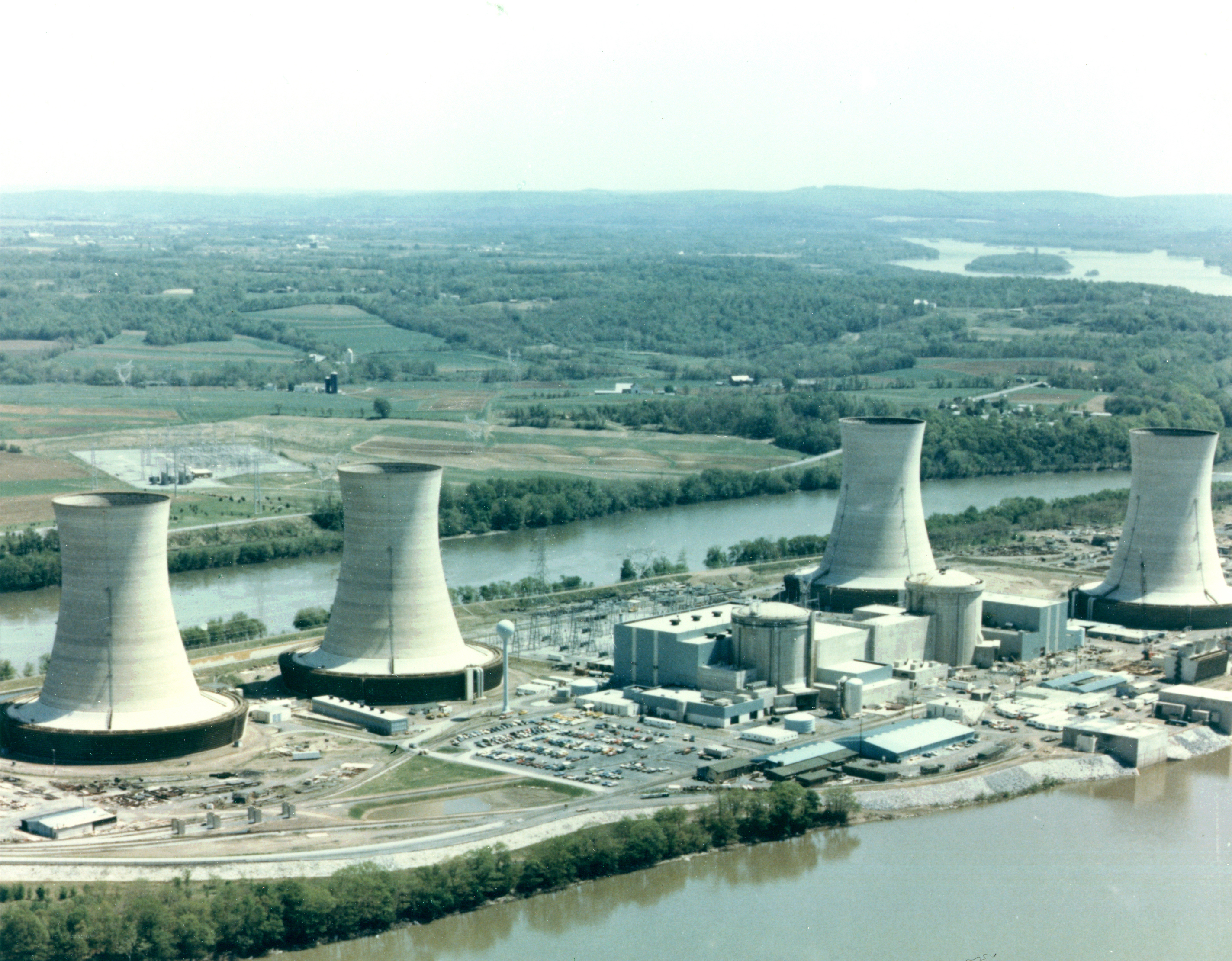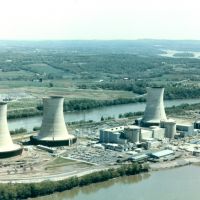In the early hours of March 28, 1979, human errors and mechanical failures combined to cause a cooling system to stop working at the Three Mile Island Nuclear Generating Station near Harrisburg, Pennsylvania. One of the station's two nuclear cores overheated, thrusting the plant into a crisis that would rivet public attention for five excruciating days.
Some 200 km away, at the headquarters of the Nuclear Regulatory Commission (NRC) in Washington, D.C., 36-year-old lawyer Peter Bradford suddenly found himself facing a critical double test.
First, would he and the four other commissioners who headed the government agency charged with ensuring nuclear safety be able to rein in the worst nuclear accident at a commercial reactor America had ever seen? And second, would it be able to do so while keeping the process transparent — as U.S. Freedom of Information laws required?
They are the same key tests that officials at Japan's nuclear watchdog agencies have faced since multiple reactors at the Fukushima No. 1 nuclear power plant suffered meltdowns following the Great East Japan Earthquake on March 11.
In some ways, the results have been similar as well.
In both cases, scholars, activists and politicians have questioned how ready government agencies were for a major accident — as well as how effectively they protected the public.
In both cases, the responsible agencies had difficulty providing accurate real-time information about what was going on at the plants and within the government.
Journalists who covered the Three Mile Island accident described information coming from the NRC, plant operator the Metropolitan Edison Company and the state government at the time as "chaotic," "confusing" and "contradictory" — just as journalists described the situation in Japan three decades later (although here, information may have been deliberately withheld).
But in the aftermath of the Three Mile Island accident, citizens, journalists and politicians had one key resource whose equivalent their counterparts in Japan will have to do without: transcripts of the discussions between Bradford and his fellow NRC commissioners as they struggled to handle the crisis.
During the crucial first two weeks of the still-ongoing Fukushima disaster, transcripts were not made of similar key exchanges.
However, ensuring that the mid-crisis meetings were recorded wasn't easy, Bradford said.
The 1976 U.S. Government in the Sunshine Act requires meetings at government agencies be open to the public if and when there are enough high-level agency members present to make a binding decision — and as long as the meeting does not fall into one of 10 exempt categories.
Most NRC decisions are made by five commissioners, which means that any time three or more of them meet they have decision-making power, and so the gathering falls under the Sunshine Act.
Until the Three Mile Island accident, holding open meetings hadn't been a logistical problem. But with a crisis in full swing, commissioners camped out at NRC headquarters and held impromptu gatherings around the clock.
"It didn't seem feasible to do that in public, so NRC staff took to wandering around with tape recorders, and whenever a third commissioner joined a conversation between two others, they'd start recording," Bradford recalled. That fulfilled the legal requirement.
Once the crisis was under control, the transcripts were reviewed to make sure there was no basis for withholding them. Shortly thereafter, they were handed over to congressional committees that had demanded them; one congressman quickly flipped the transcripts to the media.
So, although they hadn't assisted mid-crisis reporting — and Bradford said that the knowledge he was being taped didn't alter his actions — the transcripts became an important source for later reporting and for the presidential commission charged with assessing the NRC's disaster response.
"The transcripts were like the black box in an airplane crash. They were a treasure trove for reporters in terms of how much the NRC didn't know (during the crisis)," Bradford said. Prime among those unknowns was the fact that part of the core had melted on March 28.
"Trying to convince people we really didn't know (it had melted) would have been very hard (without the tapes)," he said.
The tapes did spark a few media emergencies. In one case, Bradford recalled, a transcript revealed that a staff member said, "I don't know why people are sitting around waiting to die." This was soon headline-material — until the tapes made clear that "decide" had been mis-typed as "die" during the transcription process.
In another instance, the chairman lamented that, "we're like a couple of blind people staggering around making decisions." An outraged letter soon arrived from the national association representing blind people, accusing the chairman of "gross insensitivity."
Overall, however, Bradford believes the tapes proved a boon to the NRC despite the many serious problems they revealed. "There was no sign of any coverup, so they damped down paranoia. I think those tapes saved nuclear power (in the United States)," he said.
In Japan, scholars may one day find the mirror-image of that statement to be true.
On March 30, almost three weeks after the Fukushima disaster began, Chief Cabinet Secretary Yukio Edano revealed that no transcripts had been made at critical early joint meetings between the utility's operator, Tokyo Electric Power Company (Tepco), the Nuclear and Industrial Safety Agency (NISA), the Nuclear Safety Commission (NSC) and the Ministry of Education. The reason, he said, was that information was being exchanged continuously as needed, rather than at formal meetings.
"In Japan, the degree of importance of a particular exchange of information isn't the basis for deciding whether to record it or not," explained Yukiko Miki, chair of Information Clearinghouse Japan, a nonprofit organization working to expand the government's information disclosure.
While laws do require important decisions to be recorded, until this spring the requirements for recording the discussions leading up to those decisions depended on the formality and legal standing of the meeting where the discussion took place.
For instance, a formal deliberative council meeting would require transcripts, while an impromptu but equally important mid-crisis chat might not. Practices varied widely across agencies.
Not only were many of the joint nuclear disaster meetings informal, but on May 6 Edano said their legal standing was also unclear. He described the joint headquarters as a "practical organization" — rather than a legal entity; according to Miki, this may locate it beyond the reach of Japan's freedom of information laws.
A new Record Management Law that took effect this April not only makes recording requirements uniform at all government agencies but also ensures that, when important questions are being decided, the whole process is recorded. The law may make record-less meetings like those that took place post-Fukushima illegal in the future, but in March it had not come into force.
Without those early records, not only reporters and citizens, but also the committee set up by the government to investigate the accident, face problems in uncovering who is ultimately responsible for the massive human, economic, and environmental losses stemming from the meltdowns.
"Were there problems in the decision-making process? What was known and not known? You can hold hearings (after the fact), but if there are no transcripts, it's hard to investigate objectively," said Miki.
Her organization is planning a project to formally request and archive all governmental records that do exist relating to the Fukushima accident. In doing so, the group will make use of the Information Disclosure Law that came into force in 2001 — with a revised version currently awaiting adoption by the Diet.
But Masaru Kaneko, an economics professor at Keio University in Tokyo, who is a frequent critic of Japan's public policy, doubts whether Miki's strategy will lead to the release of much new information — and not just because existing laws allow information requests to be denied for a wide variety of reasons.
"Japan's Freedom of Information laws exist within long-established political and administrative systems, so they don't function properly. At the center of power are the very people who don't want the information to come out," he said.
In fact, the disaster has so far implicated not only the nuclear industry but also politicians, academics and even supposed watchdog agencies that worked together to promote nuclear reactors as safe, cheap power sources.
"The core (of those corrupt relationships) has been exposed," Kaneko said. Miki, too, said information-disclosure problems have as much to do with the internal culture of government agencies as with the law.
"When information is released, there are all sorts of reactions and criticisms. Release is a risk for the government. Their basic position is antidisclosure," she said.
As the official Japanese inquiry into the Fukushima accident continues, the consequences of that deeply entrenched attitude are set to play out on a very high-profile stage.
"We're going to see what it's like when government agencies aren't able to prove they were acting in good faith," said Bradford.






















With your current subscription plan you can comment on stories. However, before writing your first comment, please create a display name in the Profile section of your subscriber account page.